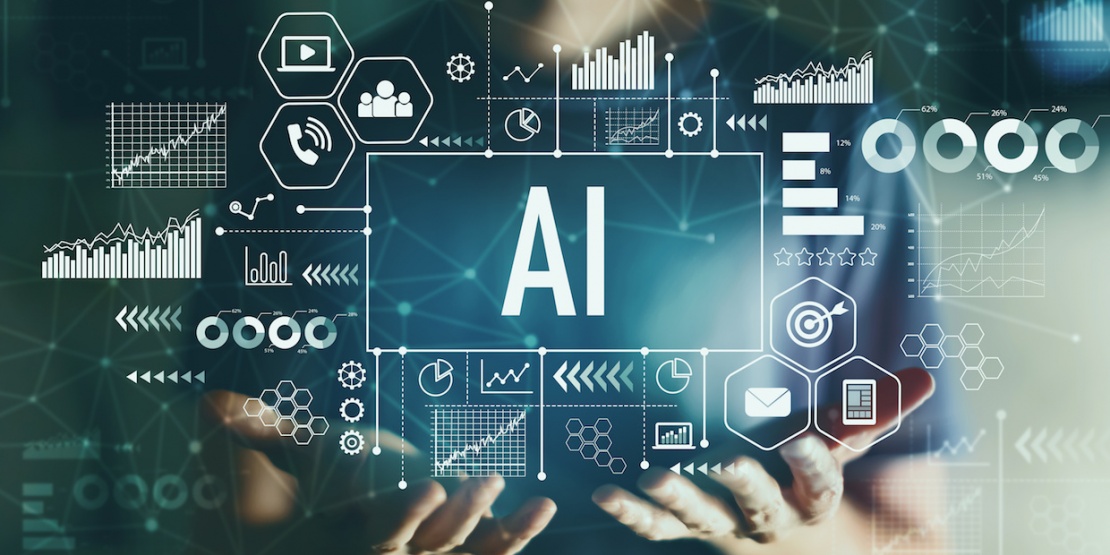As we enter the Fourth Industrial Revolution, new technologies are becoming a powerful performance lever for companies. However, some will play a more important role than others in the digital transformation of procurement. Among them, artificial intelligence (AI) in particular stands out. A strong driver of value-creation, it promises new synergies. However, the concept of artificial intelligence can sometimes seem vague and can encompass a variety of technologies. A recent study by GEP, the world’s leading provider of digital procurement and supply chain solutions, sheds a welcome light on the concept of artificial intelligence as it applies to the procurement and logistics sectors. Discover the definition of AI and eight key benefits of implementing it in procurement.
Artificial intelligence: origin and definition
Although the idea of a “thinking machine” dates back to Greek Antiquity, the notion of artificial intelligence only really emerged in the 1950s. Its foremost pioneers were the mathematicians Alan Turing and John McCarthy and the psychologist Frank Rosenblatt.
As a performance driver, AI has more recently been applied to procurement. By definition, the term “artificial intelligence” (AI) encompasses a range of applications, techniques and processes that can act “intelligently”.
To better grasp the ins and outs of AI, it’s worth knowing that it incorporates two subfields.
Machine Learning (ML)
Machine Learning is the process of teaching computers to learn by themselves. This subfield of AI aims at continuous performance improvement. This tool enables decision-making that is autonomous, appropriate and free from human intervention. Natural Language Processing (NLP), a branch of Machine Learning, aims to assimilate human language into computer programs.
Deep Learning (DL)
Deep Learning is based on processing vast amounts of data. It relies on mathematical approaches that mimic the way in which humans acquire knowledge. A subfield of Machine Learning, Deep Learning seeks to automate predictive analysis. Based on an artificial neural network, it makes AI more powerful and dynamic.
In short, this means that these machines can carry out tasks that would otherwise require capacities inherent to the human brain, such as reasoning, autonomy, information retrieval or learning.
What differentiates artificial intelligence from conventional programming is this cognitive dimension, in the psychological sense of the term, i.e. which concerns the means and mechanisms of knowledge acquisition.
Artificial intelligence technologies are indeed capable of handling unstructured scenarios and developing a continuous learning process.
Artificial intelligence: eight key benefits for procurement
For several years now, procurement has been undergoing a digital transformation that increasingly involves the use of artificial intelligence. Indeed, the application of AI to procurement offers tangible benefits, which can be divided – following the logic of the GEP study – into eight categories.
Information
AI makes it possible to mine vast amounts of complex big data. It provides more information in real time, facilitating and improving decision-making by procurement teams. Powered by artificial intelligence, predictive analysis enables projections to be made based on historical data collection. However, this requires databases to be properly organised in advance.
Productivity
AI can reduce the average processing time of procurement processes by 25-60%, especially as it can operate 24 hours a day, 7 days a week. Indeed, artificial intelligence helps to drastically reduce time-consuming tasks such as tender selection. Combined with Machine Learning, AI improves the productivity of the entire procurement and supply process. With the help of AI, procurement teams can focus on higher value-added tasks.
Implementation
The implementation of AI typically is profitable in about 8 weeks (provided that the data is properly defined and organised). For its successful implementation, it is best to proceed in stages, as follows:
- Identify use cases for AI within the procurement department;
- Pinpoint the most appropriate technologies for data analysis and management;
- Handle the change through clear and reassuring communication.
Once artificial intelligence has been integrated and adopted, the benefits are passed on to the entire company.
Savings
AI can deliver between 5% and 40% additional savings through spend and supplier panel analysis. A true performance driver, AI targets priority areas for optimisation and facilitates decision-making for buyers. Generally speaking, artificial intelligence supports the deployment of effective strategic action plans to ensure greater profitability.
Quality
AI ensures consistent quality by reducing manual tasks. It automates and improves time-consuming tasks while limiting the risk of error. At VAS level, AI enables better analysis of returns and promotes optimal complaint management. From procurement to supplier relations and transport, AI improves the quality of the entire supply chain.
Costs
AI can reduce processing costs by 30-40%. For example, simple tasks, such as level 1-2 technical support, can be handled by chatbots.
Security
By helping buyers select the best suppliers, AI reduces the risk of fraud and late payments. When used to manage procurement contracts, it ensures greater legal protection. Artificial intelligence therefore helps make procurement more secure.
Competitiveness
Artificial intelligence creates value, fosters innovation and helps increase the overall competitiveness of the company among its customers and prospects.
Just like other key technologies (RPA[1], IoT[2], chatbots, blockchain, etc.), artificial intelligence offers a glimpse of a new future for procurement departments: a strategic shift and high value-added tasks that rely on uniquely human skills (interpersonal, influence, creativity, etc.).









